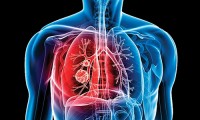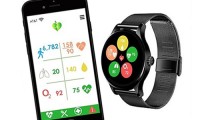-
Accent raised $40 Million to Develop Epitranscriptomics Studies
- Source: Ddu
- 879
- May 21, 2018
-
Aimovig a New Drug for Migraines Gets Approval from FDA
- Source: Ddu
- 903
- May 21, 2018
-
Antibiotic contamination? – Clear away with Antibiotic resistant bacteria
- Source: Ddu
- 771
- May 21, 2018
-
Discovery of New Target to Treat Pulmonary Hypertension
- Source: Ddu
- 817
- May 21, 2018
-
Novel Blood Test to Predict TB
- Source: Ddu
- 780
- May 21, 2018
-
Opt for Cancer Drug to forgo Tuberculosis
- Source: Ddu
- 820
- May 18, 2018
-
Correct Color Blindness Using Contact Lens
- Source: Ddu
- 679
- May 18, 2018
-
Grand Challenge by Bill Gates against Universal Flu
- Source: Ddu
- 836
- May 18, 2018
-
LifePlus announces glucose monitoring wearable
- Source: Ddu
- 1,348
- May 18, 2018
your submission has already been received.
OK
Subscribe
Please enter a valid Email address!
Submit
The most relevant industry news & insight will be sent to you every two weeks.

















